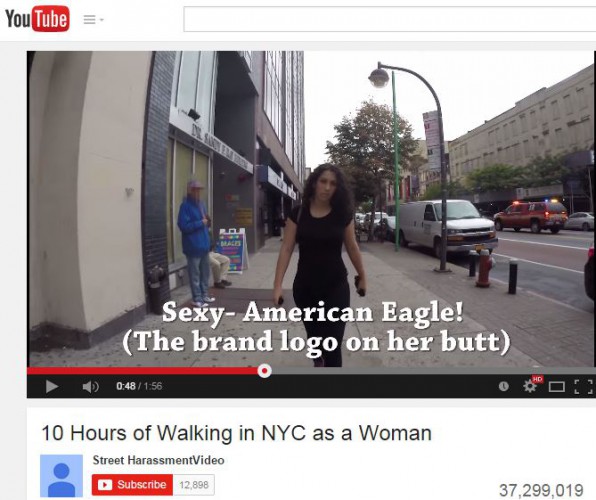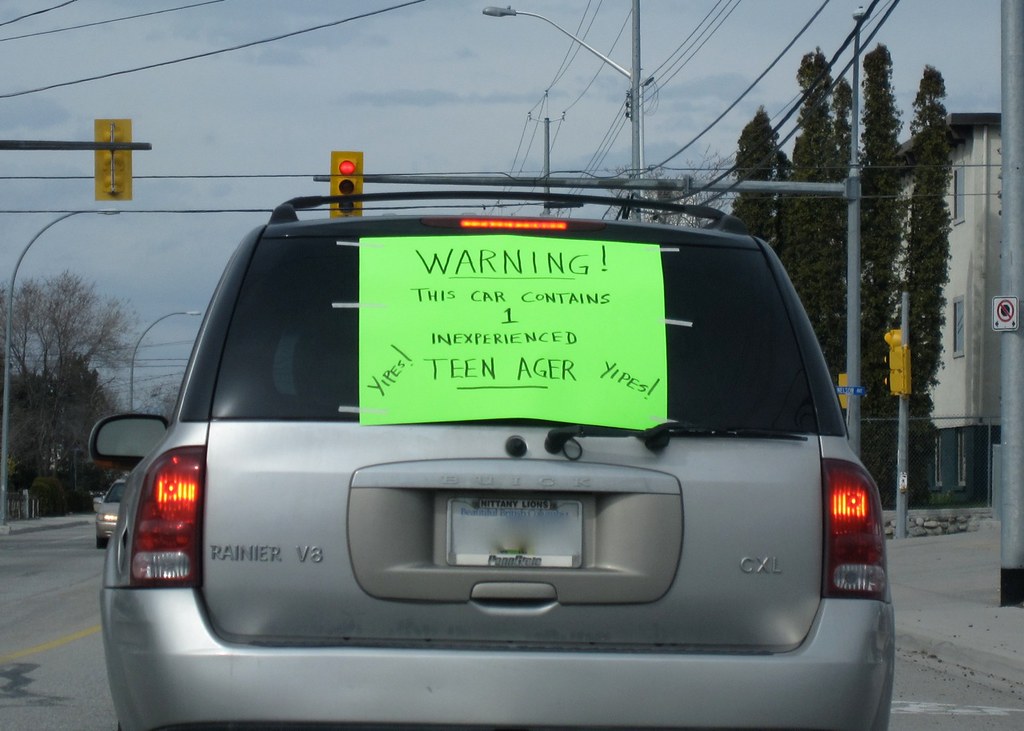
By CAMERON DIIORIO & MEHAR NANGIA
Staff Writers
Recently, a video of a woman walking through the streets of New York City for ten hours became an internet phenomenon. However, the woman was not just a normal citizen. She was a planted actress participating in an experiment by Hollaback!, an organization in New York dedicated to stop catcalling through awareness and education.
The aspiring actress, New York City native Shoshana Roberts, was instructed to walk the blocks of Manhattan for ten hours silently while being secretly filmed. Throughout the course of the experiment, Roberts was catcalled one-hundred and eight times. Some of the verbal abuses used by her harassers were things like: “Hey baby,” “Sexy–American Eagle [referring to the logo on her jeans]” and “Damn girl!”
Since the video went viral, Roberts herself has received death and rape threats, evidence that the video did raise awareness but did not stop the problem of misogyny today. The video did fulfill the company’s intention to raise awareness and go viral, but ironically, in the process of trying to point out the discomfort women feel when being sexually harassed, she continued to be harassed in the form of rape threats.
Additionally, a debate response from CNN featuring The MANual author Steve Santagati and comedian Amanda Seales blew up across the Internet. Santagati, your average white male middle-aged misogynist, was quick to point out that women should allow men to be “bolstering your self-esteem, bolstering your ego. There is nothing a woman loves to hear more than how pretty she is.”
Fundamentally, there are many things wrong with Santagati’s statement. Catcalling is not a compliment: it is invasive and a form of sexual harassment. Catcalling is not meant to “bolster [a woman’s] self-esteem:” it is meant to ascertain the dominance of the male and let the victim know he is interested in her in a sexual way. Whether the woman feels the same is irrelevant to the catcaller. Seales was able to shut down Santagati’s unpopular opinion and let him know that he had no say in the matter because he had not experienced the feeling that Roberts had when walking the streets of New York City.
As popular as Hollaback!’s video was, it still received negative criticism, even leading to parodies. YouTube channel Model Pranksters filmed a man walking through NYC in a parody of the viral video. The video mocked the women’s rights movement and Hollaback!’s attempts to raise awareness about street harassment by planting fake catcallers on the sidewalk and claiming that street harassment existed similarly for men. Similarly, Funny or Die released a video with a man walking through New York for ten hours but made it very obvious that the catcallers were planted. The video pointed out the other major flaws in our society when it comes to misogyny by having the actor, a middle-aged white male, receive things, such as Starbucks gift cards and job offers. Funny or Die’s parody clearly pointed out the white, male privilege in our society without mocking feminism, while Model Pranksters poked fun at the fact that women get catcalled daily without consent.
The video has obviously spurred controversy. The issue at hand, however, should not be the production of the video but rather its message. It is completely unjustifiable that in the biggest city of one of the most developed countries in the world, a woman has to go through such blatant harassment not just once but over 100 times in a period of ten hours. The question we need to ask as a society is why many men think this harassment is okay.
According to the Telegraph, 95% of women have experienced some type of catcalling or street harassment. And when you ask most men what they think about it, they consider it a non-issue. When a large percentage of women have experienced the same treatment and consider it harassment, the argument that it is just complimentary should not have any standing. What men need to understand is really simple: women are not objects. Seeing a beautiful piece of art at a museum is not the same thing as seeing an attractive woman on the street. That art is an object. Please feel free to comment on its appearance as much as you wish, but that woman, however, is a living, breathing human being with emotions and thoughts. She should not have to deal with those comments. If you were a woman in New York City, and you had to constantly be in public whether it be in a subway or on the street, would you not be uncomfortable and annoyed by persistent hollers at you?
The argument that some women “ask for it” by wearing clothing that is considered provocative is equally unjustifiable. First of all, no matter what women wear, men should have enough self-control to not comment on their bodies by yelling in public. But what is most annoying is that in the video, the woman was wearing a normal t-shirt and a pair of jeans and was still catcalled. There is no way that she was “asking for it.” What do people want women to do, walk around in a giant cardboard box? Women should be allowed to wear clothes that they want to wear without being harassed. The freedom to live your life the way you want to without fear is a right that not only every American but also every human being should have. Please stop cat-calling. If you like a girl, go introduce yourself in an appropriate fashion. Calling her a “hot mami” from a few feet away is not going to do anything except make everyone around you think that you have no social skills whatsoever.
Gender equality far from purr-fect: Youtube’s catcalling video
December 3, 2014

0
Tags:
Donate to Sword & Shield
$180
$1000
Contributed
Our Goal
Your donation will support the student journalists of University High School. Your contribution will allow us to purchase equipment and cover our annual website hosting costs.
More to Discover













